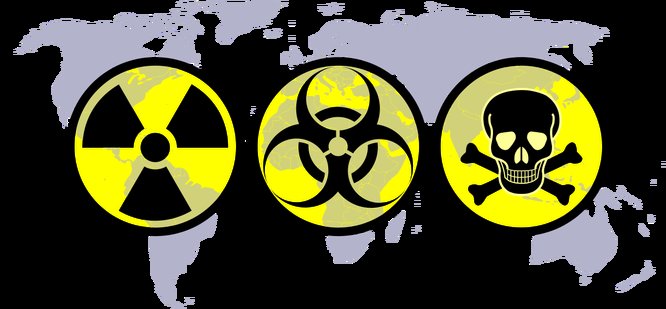Burma this week ratified the chemical weapons convention, becoming the 191st member of the Organisation for the Prohibition of Chemical Weapons (OPCW), the international body announced on Thursday.
Welcoming Burmese Foreign Minister Wunna Maung Lwin at the organisation’s headquarters in The Hague, Netherlands, OPCW Director-General Ambassador Ahmet Üzümcü said, “Myanmar’s membership will significantly strengthen the global prohibition against chemical weapons, especially in Asia.”
In response, Burma’s foreign minister said that his country “is committed to fulfilling its obligations under the convention and looks forward to cooperating with other state parties to bring about a world completely free of chemical weapons.”
The Chemical Weapons Convention prohibits the production, development, possession, stockpiling, transfer and use of chemical weapons. According to OPCW policy, state parties must declare and destroy any stockpiles of chemical weapons and related production facilities, as well as any old or abandoned chemical weapons, and submit to an international monitoring and verification process.
Burma’s membership in OPWC takes effect within 30 days, leaving just Angola, Egypt, Israel, North Korea and South Sudan as countries not to have joined the convention.
The OPCW won the Nobel Peace Prize in 2013 for its work in the wake of efforts to rid Syria of its chemical weapons stockpile.
Burma was among the first countries to sign the Chemical Weapons Convention in 1993. However, under the previous ruling military junta, the country fell into pariah status on the international stage. It reignited steps to finally ratify the treaty in 2014.
[related]
Although Burma has now joined the international convention, fingers have been pointed at its military using and manufacturing chemical weapons in recent years, though those allegations have never been conclusively proven.
In April this year, Kokang rebels in the northeast of the country claimed that the Burmese army had launched strikes on their positions that included chemical agents.
Speaking to DVB at the time, Myanmar Nationalities Democratic Alliance Army spokesman Tun Myat Lin said the Burmese government forces launched offensives against elevated Kokang positions in the mountains near Laogai on 23 April.
“Among the 1,500 shells they fired at our outposts, about five contained chemicals,” he said. “The smoke from them was different from other shells: it was bright with a fragrant smell. Our soldiers who inhaled it got nauseous and vomited.”
In February 2014, a CEO and four correspondents of Unity Weekly journal were arrested and charged under the Official Secrets Act for publishing a report about an alleged chemical weapon factory in Pauk, Magwe Division.
The story, though never verified, provoked a media frenzy. Burma’s Information Minister Ye Htut quickly denied the allegations by assuring journalists that “our country is a signatory state to the Chemical Weapons Convention – it was just a defence-related factory, not a chemical weapons factory.”
This turned out to be a somewhat misleading response. Burma was not yet a state party to the convention.
Some months later, Magwe Regional Court reduced the sentences of the five members of the by-then defunct Unity Journal to seven years from ten years following an appeal.
And in another high-profile incident, in November 2012, Burmese riot police cracked down violently on a peaceful group of protestors who were staging a sit-in at a site near the Letpadaung copper mine in Sagaing Division.
Some 80 protestors were injured, many with horrific burns that several experts have attributed to white phosphorous bombs.
White phosphorous is an incendiary weapon, which burns fiercely and can ignite cloth, fuel, ammunition and other combustibles. It is also deployed as a tracer or for creating smoke screens, and is most commonly associated with the Israeli military’s deadly assaults on Gaza in 2008-09.



